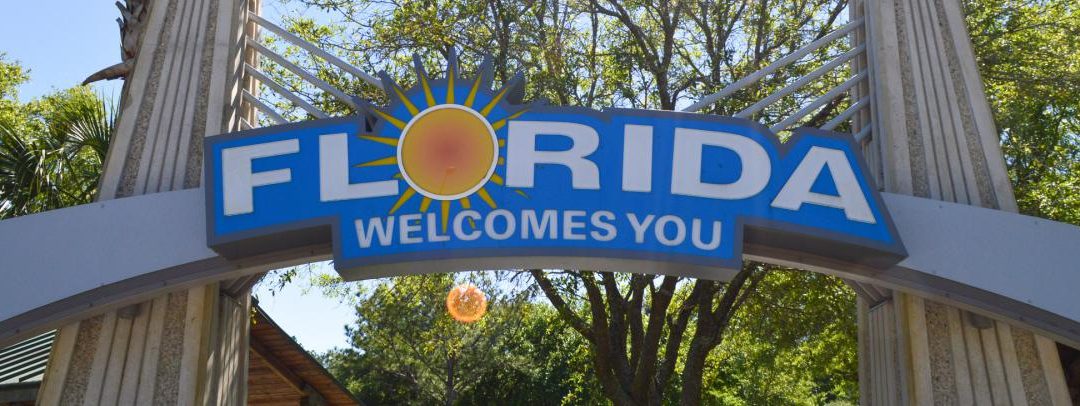
Popular destinations in the state are welcoming visitors and seasonal residents while recovery efforts from Hurricanes Milton and Helene are ongoing.
BRADENTON BEACH, Fla. — The start of “snowbird” season in Florida is only weeks away, but many Florida Gulf Coast beaches, regularly voted some of the best in the United States, are closed to the public because of the devastation from Hurricane Milton two weeks ago.
Most restaurants and shops in the tony St. Armands Circle district of Sarasota were flooded with water from Milton and Hurricane Helene, which tore through Florida almost two weeks ahead of Milton. The dominant performing arts hall in Sarasota is closed until January because of extensive damage. Mounds of debris are scattered along Gulf Coast roads.
Hurricane Milton’s devastating toll along Florida’s Gulf Coast hit one of the most popular areas for snowbirds — temporary residents who spend winter months in the Sunshine State — right before the start of the season which generally runs from after Halloween to around Easter. Milton landed on a barrier island in Sarasota County as a Category 3 hurricane. The storm swamped coastal homes with mounds of sand, pushed water inland and caused tens of billions of dollars in privately insured losses up and down the Gulf Coast.
Visitors need to stay away for the time being so they don’t interfere with the work of residents and recovery workers, said Larry West, a construction contractor who has been pulling long hours digging out 4-feet (1.2-meter) drifts of storm-driven sand at a condo complex on Manasota Key, about 32 miles (19.8 kilometers) south of Sarasota.
“Give this area time. Don’t come here,” West said. “It doesn’t help when you get people in the way.”
Other Floridians on the Gulf Coast are taking the opposite view. In Clearwater, more than 55 miles (34.1 kilometers) north of Sarasota, Mayor Bruce Rector said he has been fielding calls from as far away as Canada, asking him, “Mayor, when will it be safe for Canadians to return to Clearwater?”
“I told them, ‘Today,’” Rector said during a recent meeting of the Pinellas County Tourist Development Council. “It’s not going to be perfect, but you’re going to have a similar experience to what you’ve always had here.”
Shawn Kaleta, one of the largest property owners on Anna Maria Island, about 20 miles north of Sarasota, also feels bullish about this season as reservations at the rental properties he manages are trending up from where they were last year.
Florida, a state with 23 million residents, has about 1.5 million seasonal residents annually, with about a third coming from Canada.
Evan Rachkovsky, communications director of the Canadian Snowbird Association, said he hasn’t heard of any members canceling their plans, even those whose homes were damaged, although some are delaying their trips until the situation improves.
“Most of our members are still going to be proceeding south as planned,” Rachkovsky said.
Some snowbirds have already made their annual migration south despite the latest storms, returning to their pickleball groups and tennis leagues even as some of their neighbors’ condos remain unlivable.
Because of Sarasota’s renown for a thriving performing arts scene, a sizable chunk of its snowbirds are performing arts patrons. Milton caused extensive damage to the Van Wezel performing arts hall, which hosts the Sarasota Orchestra and the Sarasota Ballet, and all performances have been canceled until the beginning of the new year.
During the past few years, many snowbirds have delayed coming to Florida, choosing to return after hurricane season ends in late November. As a result, some performing arts groups are pushing back the start of their seasons to later in the year, said Richard Russell, general director of Sarasota Opera, where about 40% of season subscribers are snowbirds.
“If people for a couple of years delay coming back because of storm activity in late October, that may be the new pattern,” Russell said.
Owners of vacation homes outside Florida see opportunity in the Gulf Coast’s misfortune. Gary Sacks advertised his two-bedroom condo in North Myrtle Beach, South Carolina, on the “Florida Snowbirds 2025” Facebook page less than a week after Milton made landfall, targeting those “whose plans for being a snowbird were impacted by the two hurricanes that hit Florida.” He didn’t respond to a request for an interview.
Jim Lenz, 96, who lives outside Dayton, Ohio, and spends the winter months in The Villages, a sprawling central Florida retirement community, believes the storms may give pause to some snowbirds’ winter plans, “particularly people who are older and may decide, ‘I don’t want to take that chance anymore.’”
“Some may give up on it. Others may decide, ‘We just can’t stand the cold up here and we are going down,’” Lenz said.
Some snowbirds like Joe Singer say the growing number and intensity of the storms aren’t going to keep them away. Singer, who has spent the past five winters in Parkland, Florida, instead of his native New Jersey, said he and other snowbirds are adapting by purchasing homes further inland or on higher ground and acquiring generators.
The winter months are “like a mini-heaven,” said Singer, who is an avid walker. “I get up in the morning and go walking. I don’t have to scrape ice off my windshield. I don’t have to shovel the sidewalk. It’s just been very, very nice.”
Copyright 2024 The Associated Press. All rights reserved. This material may not be published, broadcast, rewritten or redistributed without permission.
Go to Source
Author: amyc



